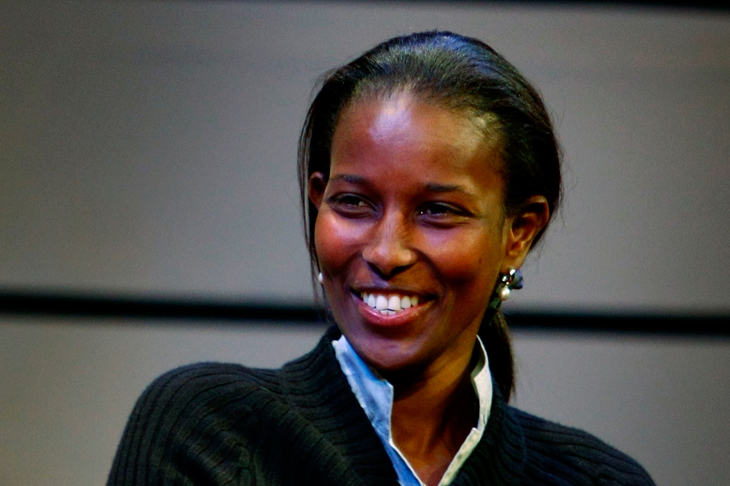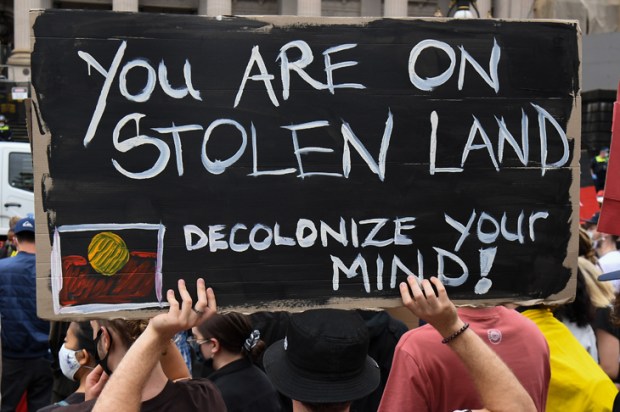According to the UN’s definition, ‘failed states’ are political entities that demonstrate little or no ability to provide their citizens with basic security.
American political scientist William Zartman argues that, in most cases, the process of state failure is gradual and prolonged, rather than sudden, as in a coup d’état or revolt. He notes that states that suffer from internal disintegration (primarily because of identity politics—religious, ethnic, etc.) and simultaneously are characterised by weak or non-functioning institutions are liable to become failed states. In such states, failure intensifies in a kind of vicious circle. The weakness of the state’s institutions reinforces the fragmentation, which in turn further weakens the institutions and their legitimacy. (From an article in Middle East Forum, by Kobi Michael and Yoel Guzansky.)
I don’t know about you, but to me this comes frighteningly close to describing the UK and Australia these days. Before you harrumph and ridicule me, take note of this from the above: ‘in most cases, the process of state failure is gradual and prolonged, rather than sudden’.
Just two examples of failing to provide basic security: in the UK gangs rape girls and the police avoid confronting the young immigrants for fear of being labelled racist. In August 2014 the report by Professor Alexis Jay concluded that an estimated 1,400 children, most of them white girls, had been sexually abused in Rotherham between 1997 and 2013 by predominantly British-Pakistani men. (Wikipedia)
In Melbourne, ethnic gangs invade houses, attack citizens, defying the police.
Teen thugs linked to an emerging gang, Menace to Society, have shamelessly taunted police, bragging on social media about their reckless behaviour damaging property as well as their desire to continue chaos in Melbourne’s western suburbs. The network of youths, mainly of Sudanese origin, regularly boast on social media about their disregard for the law, posting photos of weapons and promoting gang culture. (Herald Sun, 10 Jan, 2018)
Freedoms of speech and of association are stunted by activists unchecked by our ‘leaders’. When the planned visit of Muslim reform supporter Ayaan Hirsi Ali was greeted with threats of physical disruption and cancelled, the Prime Minister said nothing. Did nothing. When Marxist activist Roz Ward tried to rip off a Donald Trump branded cap from a man in the street, the PM said nothing. When screenings of the film The Red Pill were threatened with physical disruption and were cancelled, the PM said nothing.
As for the ‘weakness of the state’s institutions’, it is notable and ironic that so many (conservatives or not) regard the Australian Human Rights Commission not as a protector but as a violator of human rights, thanks to some of its abysmal, well-publicised practices.
Banks have institutionalised fraud against their customers while some political parties perpetrated fraud against the taxpayer. The ABC is regarded by conservative voters as a failed taxpayer funded institution for its one sided menu of left-wing offerings; a Green-Left stooge.
Perhaps most dangerously, the institution that is our legal system is intermittently but seriously failing the citizens. The inspector of ICAC, David Levine, has described the corruption watchdog’s pursuit of the New South Wales public prosecutor Margaret Cunneen as a ‘debacle’.
There has been much public outcry over too-lenient bail processes and lenient sentencing for serious crimes and terror-related offences. Remember Man Haron Monis of the Lindt café siege? Victorian judges’ sentencing queried?
Away from pubic scrutiny, though, there is an especially troubling failure of the administration of the criminal law, showing the flipside of leniency: the determined resistance of the system to correct what are claimed to be errors that result in too many wrongful convictions for crimes such as murder and rape. One study counted 71 known cases. That resistance takes many forms, but one of the most egregious is the willingness of the system to delay or defer any possible corrective action. Here are three current examples:
Gordon Wood was convicted in 2008 of the murder of Caroline Byrne, whose body was found early morning on 8 June, 1995, on the rocks at The Gap, a notorious suicide spot in Sydney’s eastern suburbs. In 2012 the Court of Criminal Appeal set aside his conviction. Wood is suing the State of NSW and the DPP for malicious prosecution. That trial ended in March 2017; the decision of Justice Fullerton has still not been delivered, more than a year later.
Hobart grandmother Sue Neill-Fraser was convicted in 2010 of murdering her partner Bob Chappell in 2009 with a wrench, even though Chappell’s body has never been found nor a murder weapon produced in evidence nor a credible motive established. Still, her 2011 appeal failed. She is now seeking leave to appeal her conviction and 23-year sentence under new legislation passed in 2015. Obstacles and delays have continually stretched the process; the next hearing in Hobart Supreme Court has been moved from 26 June to late August 2018, by which time Neill-Fraser will have been in prison for nine years. And that’s just to see if she has leave to appeal.
A much-liked, generous and respected businessman, let’s call him George, was accused by his grown-up stepdaughter of historical sexual abuse when she was 8. He and his wife (the girl’s mother, who dismisses the lurid allegations) have been through hell as his business and personal reputation were trashed, in a process that is so flawed that a lawyer has prepared a 70-page petition to the Governor via the Attorney-General, putting a strong case for a review. George has already served his sentence and is on the sexual offenders list. He is desperate to clear his name. The petition was lodged with the NSW Attorney-General’s office in February 2015. There has been no response in over three years. A letter by this writer to the A-G on January 10, 2018, asking what the A-G intends to do, has also gone unanswered, as have two follow up requests.
Australia may not feel like a failed state to most, and many will say that’s an exaggeration. But ask those who the institutions of state has failed to protect, or those serving long sentences for crimes they didn’t commit. The state has certainly failed them.
Got something to add? Join the discussion and comment below.
Get 10 issues for just $10
Subscribe to The Spectator Australia today for the next 10 magazine issues, plus full online access, for just $10.
You might disagree with half of it, but you’ll enjoy reading all of it. Try your first month for free, then just $2 a week for the remainder of your first year.














Comments
Don't miss out
Join the conversation with other Spectator Australia readers. Subscribe to leave a comment.
SUBSCRIBEAlready a subscriber? Log in